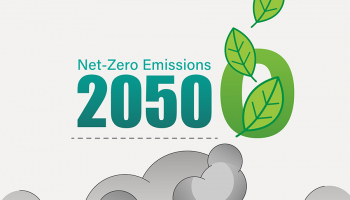S&P Global launches Net Zero 2050 climate select indices
Indices designed to accommodate ESG structured products
- |
- Written by Banking Exchange staff

S&P Dow Jones Indices (S&P DJI), a division of S&P Global, is launching the S&P Net Zero 2050 Climate Transition Select Index Series and the S&P Net Zero 2050 Paris-Aligned Select Index Series, specially designed to accommodate ESG in the structured product market.
Both indices will measure the performance of a targeted number of largest float-adjusted market capitalization companies designed to be compatible with a 1.5C global warming climate journey.
Excluded companies include those that fail to comply with United Nations Global Compact (UNGC) principles and those involved in ESG controversies.
They are the latest additions to the S&P Net Zero 2050 Climate Transition ESG Index Series, which are aligned with the European Union’s minimum standards for low carbon benchmarks under regulation 2016/1011.
S&P DJI first introduced the index series over a year ago as the S&P Paris-Aligned & Climate Transition Indices (S&P PACT).
Following a series of market consultations, S&P DJI strengthened the indices’ eligibility criteria and added a “Net Zero 2050” clause to the index name to better reflect their stated objectives in measuring ESG performance and alignment with the objectives of the Paris Agreement.
This time last year, Morningstar launched a socially responsible investing benchmark tilted towards companies with better gender equality policies.
The Morningstar Developed Markets ex-Japan Gender Diversity Index was launched in partnership with Japan’s Government Pension Investment Fund (GPIF), the world’s largest asset owner at the time.
In May, a report by non-profit think tank Planet Tracker revealed the world’s largest index providers, including MSCI, FTSE Russell, S&P Dow Jones and Bloomberg, were being challenged by competitors and their clients, and should prepare for ‘disruption’ driven by rising demand for sustainable investment.
The report cited falling fees, competition from their own clients, and growing demand for consumer choice as the main reasons for the shift.
Tagged under Buyside Exchange; ESG; Socially Responsible Investing; SRI; Sustainability; Net Zero; Paris Climate Accord; Climate Crisis; Diversity; Carbon Emissions; Women SMEs; Inclusion; Impact Investing;











